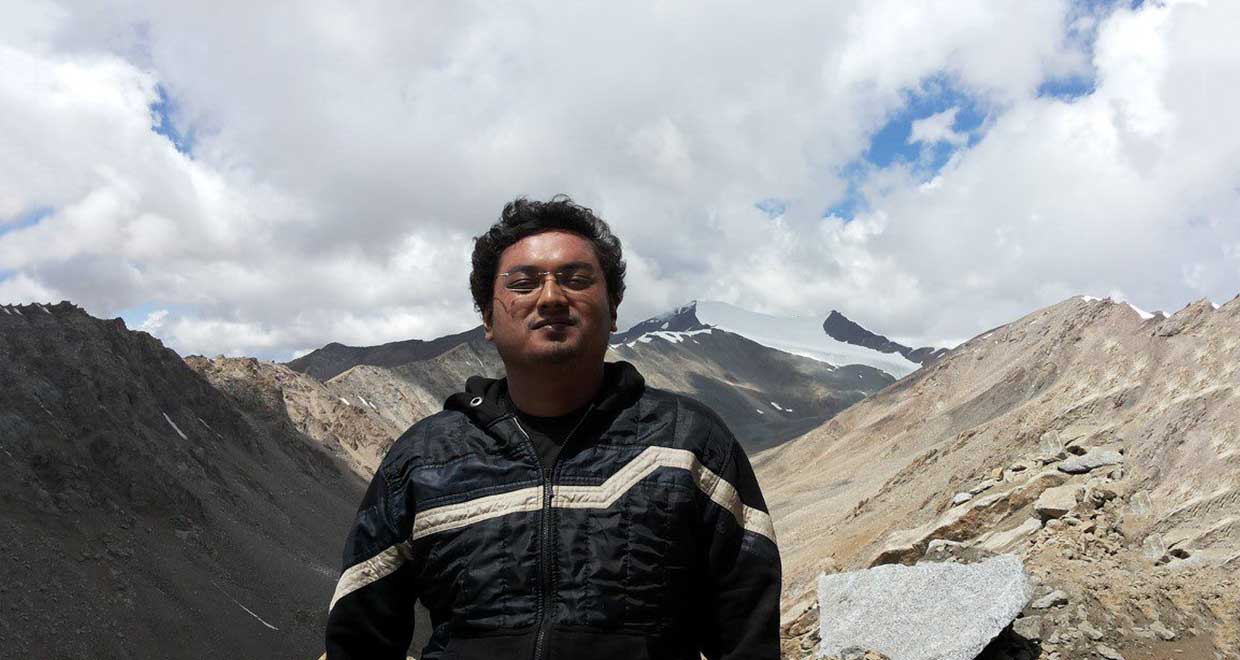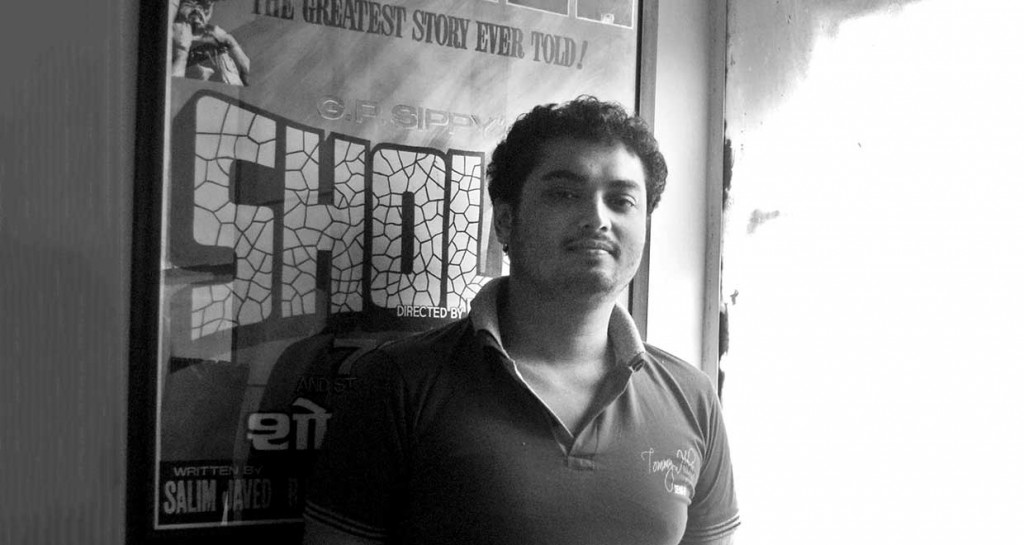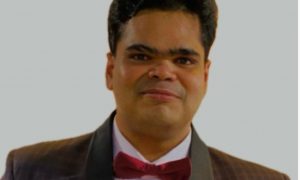Mr. Suhas Baliga graduated from NLSIU, Bangalore in 2008. He thereafter joined Luthra and Luthra and then moved on to Trilegal. His work at law firms spanned a time period of almost 4 years. Thereafter he moved on to co-found Impact Law Ventures in 2012. In June 2014, he started up with Innove Law which focuses on investment and corporate advice to seed, early stage and growth-stage companies, with a team of three associates.
We asked him to share his deep insights on:
- Life at a Law School
- Building up a firm clientele
- Challenges of setting up a law firm on one’s own
Tell us a bit about your childhood and pre-college life as well as educational background. Did you have lawyers in your family?
No. I haven’t had any lawyers in my family as such. Is it helpful to have lawyers in the family? Yes. But at the same time it is not necessary. You can also bring in lawyers into the family by marrying into one! The more difficult part of becoming a lawyer can be setting up a law practice from ground up. I wasn’t brave but had the initial good fortune of working in a firm which paid its associates well and which did not privilege family background but this is not the case with law firms in general. There is some preference for families not because we are a feudal country but because the way law firms are organised and ownership is structured, it favours closely held ownership and management, though things are changing. I never imagined myself to be a lawyer. It was a matter of chance that I went to law school. I was surprised and taken aback since that was the only law school entrance exam that I took while looking forward to engineering since that was something everybody did in Karnataka at that time. In hindsight I am happy I didn’t follow the herd.
So did you prepare for a career in technology or medical before that?
I did not ever think there is only one path. It is more of a question of what I found interesting at every point of time. Apart from being interested in politics, I was interested in pure sciences. In fact when I was in my 12th, I was either watching the news or studying physics. Because in science there were other subjects to study like biology and chemistry I used to enjoy what I used to do.
What made you gravitate towards the study of law at NLS? Was it planned or just a matter of chance?
NLS turned out to be a pleasant surprise. I was happy that I wasn’t doing engineering like everyone else and doing something different there. The fact that it was an Arts course where there was history and economics was fun. I always liked reading and writing and this aspect of the course was especially attractive. When I joined NLS it used to have a good public law focus. It used to have three constitutional law courses and three political science courses – I think the arts and public law aspects of law courses have great value in moulding an all-round lawyer. A strong grounding in constitutional law, administrative law and arts subjects also makes for a better corporate lawyer given its influence on legal and regulatory issues in general.
Was the shift from science to BA.LL.B difficult?
Not really. I remember having my first class at NLS where the professor was talking about a ball which was hit by a cricket bat and it fell outside and landed on the head of a fan in the audience, I found it all very flimsy. After calculus and thermodynamics, it seemed pretty thin. Also what puzzled me is that people used to make notes on these things! I never felt the subjects to be extremely challenging although I found some law subjects fascinating, especially where they intersected with arts subjects or where they are grounded in first principles, such as jurisprudence, criminal law, law of trusts, contract and transfer of property. Even after my 3rd year in college I wasn’t sure of doing law. I worked on a literary magazine for the college and everybody knew me as someone who writes and not someone dribbled in the professional life of law. Although I was sad when I was graduating because of not having extremely high grades, I was happy to have used the five years of college to explore varied interests and passions. In my own way at my own pace that was the best thing about college. In hindsight, I feel I took education like education should be taken. If you were to ask me, at the same time I did not take to everything about law school. I found certain aspects mundane, such as “mooting” and debates, even though a large part of my work today involves negotiating, presenting and having conversations with real people.
Law school can be monotonous at times. What different things did you do these five years at NLS?
I picked up on certain interests I had before but the law school culture certainly played a part by exposing new avenues to explore them, be it music, movies, theatre, women (!), books. There was much to do. I did participate in things recognizing that college is that period of life where you build relationships both professional/personal and expand your mind and explore new ideas.
Grades certainly may be a significant criterion, yet ironically if an analysis is made between people who scored at the top of their class and their current state of affairs, the result might be surprising. Grades may give one a good push, probably a foreign law firm job but it is not going to make one’s career. In fact, as a lateral higher when you send an application I doubt your grades will be looked at very closely.
Tell us about your internships. Did you get any institutional support for internships from your college? Any remarkable internship experience which shaped up your career?
So as far as my internships were concerned, my idea was to broad base them and never to do the same thing twice. First year I interned with a newspaper, Second year I interned with Ramchandra Guha, Third year I interned with a litigator, and in my Fourth year I did a corporate internship and oddly it was then that I discovered some interest in the legal profession. My journey as a corporate lawyer started when I was with Lexygen in Bangalore. When I joined them in their first few months, there were only three lawyers there. Lexygen was an amazing place because there was this young team who were trying to build something big. They used to love doing what they were doing and continue to do so today.
Did you find that your law school education had prepared you sufficiently for the many tasks you were required to execute during your internship?
Absolutely not. In no way did law school prepare me for an internship. Most of the internships showed me that the work as a lawyer often has little to do with anything that I had studied at law school. One of the major criticisms of law schools today in the profession is that they hardly put any emphasis on analytical and critical reasoning. They don’t learn the method neither do graduating students have an eye for detail or focus on the outcome of what you are doing and what the practical aspects are. You learn some cases and principles and feel very intelligent but the moment there is a real situation before you, you do not know how to react. In India, law practice and academics have been divergent and much needs to be done to bridge this gap. The intersection between teachers and academicians in the university and practising lawyers and professionals is very limited.
What do you feel about the perception that students of certain ‘elite’ NLU’s have a much easier time in kick-starting their career as compared to law students from other colleges?
It shouldn’t ideally matter which law school you go to. The only difference that I see, not to blow my own horn, is that in NLS during my years, we had to do some 60 term papers out of which 30-40 were serious, so that amount of writing brings in some amount of practice on how to write. So I do give NLS due credit for teaching you how to write. Whether you learn it or not is a different matter. With a lot of other colleges also they have applied the same model but most of the writing they do are for their final exams. I think it is more of a question of rigour and how much work you end up doing and if you are required to do certain amount of work it pushes you to do that amount of work. I think the greatest difference between what is considered a good college like NLS and others are the networks. And that is the only sort of advantage and this is across the board in every industry. In IIM Ahmadabad, your juniors and seniors all of them are from IIM Ahmadabad. It is an old boys club that you can tap into later. And yes there may be a difference in kinds of the professors that you deal with and the kinds of courses that you take up. There were some amazing batch mates and professors during my time with whom I built amazing relationships with. So there are obviously many intangible advantages of going to a good college which may or may not have anything to do with the actual skills that you learn.
Like networking and alumni circle, basically?
It is not just about alumni, but also the people who come after you in the college and the ability to network across a bunch of lawyers. E.g. I was Roll no 1291. There were 1290 lawyers before me. And now it has come down to 1800 or 2000 or so. There were 2000 lawyers from my college which is not such a huge number and a lot of them were well dispersed across the profession. So now if I want reference in different firms it can be somebody from my college, or if I want to hire people I may send reference to them. So yes it is a network, but more importantly, in terms of your college also you have a residential environment where people engage with each other a lot which has a certain intrinsic value. It is an example of a soft advantage which may not be directly linked what an institution is bringing to them but it is more like an ecosystem wherein it allows people from different spheres to come across, get to know each other and build a professional network. In the long run however, your ability to build networks is dependent on the efforts you put in, and the longer you spend out in the profession the less important your alumni networks become.
So you may agree to the fact that it is more about the student community of the university and not directly linked to the university itself?
Yes, and that is unfortunate and it is not the ideal situation. The university should contribute to who you are. I am not saying that NLS did or didn’t but there indeed is a lot of scope for improvement, and this is the same thing with an LL.M too. I don’t think a LL.M degree from Harvard makes one a better lawyer as much as give you access to another network. I do not mean to in any way discount the exposure that comes from attending great institutions and taking courses seriously.
After graduating from NLSIU you directly joined Luthra & Luthra. How did the appointment take place? Tell us what a typical day at work was like for you?
So after my experience in Lexygen, Luthra & Luthra had picked me up for an internship. My internship went well and I liked everything about it. 2008 was a fantastic time, I was interviewed, and they offered me the job. It was a great year even for people like me who were at bottom of my class given that half of my class was taken up by foreign firms.
Once I joined Luthra and Luthra, I worked with the infrastructure, banking and finance practice. The first six months of Luthra were as or more challenging than five years of law school. Apart from hard work, having to learn very quickly, having to deal with clients, being in situations where you do not understand anything yet you are forced to understand. I was fortunate to have very smart people work with me and that was a fantastic thing to happen in the first year of your career. It was a great place to work at with a comfortable atmosphere and a fair degree of freedom to innovate and yet have high expectations. I used to deal with bureaucrats, anchors, policy issues and policy making, issues in terms of documentation for the infrastructure sector, how contracts should be modelled, high level discussions on how a project can be structured, and in an old fashioned way we learnt to read everything twice, be very thorough. It was also very broad based because there was the corporate side, the contract and commercial side, the legal and regulatory side. After 3 years I felt I needed a change, because I was doing a lot of things which I have done before and I wanted to explore new avenues.
Trilegal offered me a position in Bombay and ensured that I will have a good mix of work that I had done in the past and what I wanted to do. I was there only for a year so I can’t really judge though I wasn’t really particularly thrilled with the shift as Trilegal had very little work in my practice areas at the time and I wasn’t assigned a stable senior resource to work with. It was in my time there that the bug of enterprise bit me. When I got out of Trilegal, it was clear that I wanted to do something which builds on my experience. It has to innovate and has to be the result of the knowledge that I have inculcated from working with law practice. I also felt there was much that could be done better and decided to move towards setting up my own model.
You thereafter left Trilegal to start your own venture. What were your ideas while quitting Trilegal? What were the challenges you faced starting up with Policy Craft and Impact Law Ventures?
There was no idea honestly. Like I said my idea was to build on my past experiences and skills that I had like in corporate finance, debt and equity finance, project finance, and the various skill sets that I had, and also in terms of building some sort of regulatory practice in terms of being able to do more in research and analysis and advocacy. When I started out the first transaction that came to me, and started working with similar early stage investments, it was 2012 and the early stage market was picking up. In the course of 2012, I learnt what kinds you need to deal with and the kind of market for legal service there is and I think that was very useful when I started working with my partner, Pankaj.
After quitting Trilegal, there was one month where I borrowed money from my father. Unfortunately I had saved no money! I don’t really see it as a challenge but just me. I have been out on my own for two and a half years now and I see this as a lot less risky as opposed to working with a law firm. Over there, you tick one or two people off and you may just get fired. In a law practice where you serve clients, the relationship is more goal oriented and broad based. It may be risky to have a technology start-up but that is not the case with a law start-up. The latter is built on relationships with clients who trust you, which if maintained well are relationships for life.
You have worked at larger law firms earlier and then after starting your own firm do you feel the work/life balance has changed? Is it more comfortable be your own boss or is the pressure of work almost similar?
I understand bigger law firms better now that I have seen the business side of having run my own law firm. Most fresh corporate lawyers have an extreme sense of entitlement and typically don’t understand that law firms are a service provider and their clients are service recipients. When you think about the law firm model, or start your own firm, how to pay your employees etc, it gives you a greater insight into how a law firm works. People think if one becomes a corporate lawyer, then one has to draft documents, one would have to read this and that, which is like saying, if I become a Chef I would have to cut bananas! I think creating value for your clients using your abilities to the best you can is the most important.
So in this profession, if you think that there are some people who get work and some who will do the work, then it means that you don’t recognize that work involves handholding your clients apart from drafting their documents or advising them or giving them memos. I don’t think the way the profession is structured right now; you can really make the distinction and think you are one or the other. If you do you are running a risk. If you can only sell and can’t practise the law, or if you can only practise the law and not sell or manage, either way you would be putting yourself at risk. So ideally, there is no such thing as a rainmaker. There are good lawyers and there are bad lawyers.
Tell us a bit about your current occupation in Innove law.
One of the things I learnt in the last two and a half years is that there is a community in India that is looking at building businesses which are driven by innovation and explore completely new models, either in terms of technological base or processes or in terms of the kinds of services they are trying to provide to the populations they are trying to serve. A lot of these businesses that are today’s small or that are growing have very interesting entrepreneurs, investors, stakeholders who are trying to build something larger tomorrow and this is the client base that interests me and I feel that the number of people who are starting up or building new businesses, need to go up and they have to do businesses in India in a way that safeguards their interests. So a lot of work that I do and that we intend to do here, whether it is with the clients, or with the policy or regulatory side, is focused on serving this group. We do this by representing entrepreneurs when they are negotiating their investments, represent investors when they are investing, represent businesses when they are growing, give legal advice concerning strategic issues that start-up businesses face amongst other things. This is just a simple way to describe it.
Where do you see yourself in five to ten years down the line?
So there are two things, in terms of 5 years and Innove law, I would like to see that the clients that we are working with right now and the clients that come to us will grow and will help in pulling the firm along. In 10 years from now, I would like to see myself having published at least one book. It can be fiction or non-fiction. But everyday what drives me is that the people that I work with today own tomorrow. It is fantastic to see your client who was fresh out of college when you first represented him is running a 100 million dollar company. There is nothing like that.
What would be your advice to our readers who may be aspiring to start their own law firms one day?
My advice to them would be that from day one, build relationships with your clients and colleagues and work hard. Read everything that comes to your desk. Be imaginative.



























